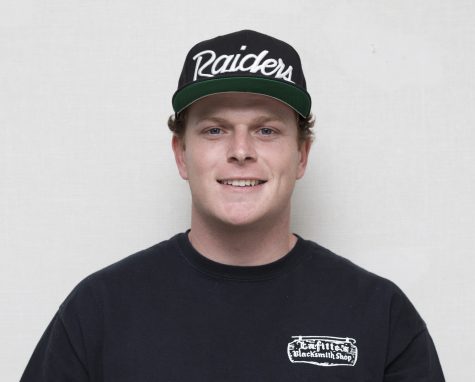Dr. Frank Chong, Santa Rosa Junior College president, delivered a reassuring assessment of student wellness during a board of trustees meeting April 12 in front of a crowd of 50 people in the Bertolini Student Activities Center.
Chong addressed the issues of sexual harassment and student homelessness on campus before delving into the agenda, which included updated plans on Measures H and A.
Chong spoke about these topics individually, touching on sexual harassment first.
“It’s an area we take seriously. I want to work collaboratively with our students to make sure we have a safe campus, and a welcoming campus,” he said.
Chong’s remarks came in response to SRJC student Melissa Debret, political science and philosophy major, who highlighted areas where SRJC was not meeting the status quo compared to similar colleges in the state.
Debret’s list of SRJC’s sexual harassment deficiencies included lack of resources, lack of dissemination of resources, poor accessibility, limited virtual infrastructure and very little funding for student psychological support to deal with the trauma of sexual assault.
Debret concluded her speech with a four-point solution on the issue that includes creating an easily accessible process and protocol for sexual assault, making emergency psychological support services available for students, improving virtual infrastructure, which would include a tab with accurate medical literature and a mandatory virtual sexual consent workshop upon registering at SRJC. The SGA agreed to address Debret’s solutions.
Regarding the issue of homelessness on campus, an older student shared an eye-opening experience on homeless challenges and attending school. The student ended his speech by calling for emergency housing for the homeless student community.
“We’re suffering. I’m 50 years old, and I’m dealing with choices and repercussions of my life,” the student said. “But you got 18, 19-year-old kids out there in sleeping bags. These kids are our future.”
Student trustee Scott Rossi alluded to the homeless situation on campus as apocalyptic. According to Rossi, the city of San Francisco is evicting 7,000 homeless people, and he strongly feels they will find their way to Santa Rosa.
Chong reassured students housing affordability is a primary issue for SRJC and its community. “I will be talking to and have been in conversation with student service leadership and some of our board members to develop a thoughtful response and plan to help see what we can do from the college’s standpoint in dealing with the homeless issue,” he said.
The agenda proceeded to updates on the Measure H and A bonds. It was determined $116,000 of Measure A funds will go towards Wi-Fi at Bailey Field and Haehl Pavilion, and computer lab upgrades for the health learning resource center and the Petaluma campus. The pending installation of these items is slated for early summer.
A board item on the May agenda calls for approval of 105 new Apple iMac computers for the digital labs in Petaluma and Santa Rosa. If approved, the computers will be purchased with Measure H money and installed in July.
The state also approved funding for a new three-story science and math building with $34 million of state funding and $33 million of measure H funding. The building will include labs, classrooms and offices for chemistry, physics, math and MESA programs.
The meeting also included accolades for the SRJC speech team, which was crowned the California Community College Forensics Association State Champions in parliamentary debate. James Rogers captured the award for overall top speaker in the entire nation in parliamentary debate and was also voted by his peers at the tournament to be the finest embodiment of the qualities of intercollegiate forensics with sportsmanship and procession.




